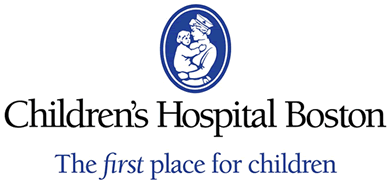COPE Intervention for Parents of Children With Epilepsy
| Status: | Archived |
|---|---|
| Conditions: | Neurology, Epilepsy |
| Therapuetic Areas: | Neurology, Other |
| Healthy: | No |
| Age Range: | Any |
| Updated: | 7/1/2011 |
| Start Date: | January 2008 |
| End Date: | January 2011 |
The purpose of this study is to determine if the program Creating Opportunities for Parent
Empowerment (COPE) is feasible to administer to parents of children with neurological
conditions. The goal of the study is to empower parents by providing them with educational
materials designed to teach them how to foster healthy coping skills in their child.
Chronic neurological conditions have a significant impact on the child and family system.
Parents of children with neurological conditions want to foster the healthy development of
their child, however, they struggle with constant feelings of uncertainty, which results in
an increased level of stress that can interfere with this goal. Stress in parents also
results in anxiety, depression, decreased confidence in care giving skills, ultimately
leading to an increase in behavior problems in the child with epilepsy. Pediatric nurses
are in a position to intervene with parents of children with epilepsy to facilitate coping
with and adjustment to these issues.
Although many researchers have identified the relationship between effective parental coping
and the improved psychosocial outcomes of children with epilepsy, little has been done to
test interventions that may be effective in improving the coping strategies of parents of
children with epilepsy. COPE (Creating Opportunities for Parent Empowerment) is a nurse
coached educational intervention, which shows promise for improving coping in parents of
hospitalized children. This is particularly significant for parents of children with
neurological conditions, as these conditions are associated with repeated hospitalizations,
stigma, and numerous comorbidities. Collectively, these factors make epilepsy one of the
most stress producing pediatric conditions for parents to manage.
This study will help to advance Nursing science in several ways. First, this study will
develop an intervention that can be used to teach parents how to help their children cope
with living with a chronic condition. This intervention could further advance Nursing
science because it could be adapted and trials performed with children who have a wide
variety of medical conditions. This study has the potential to improve the way we prepare
parents and children for hospitalization. This study will guide nursing in how to best help
families cope with caring for a child with a chronic condition.
The research consent form has been reviewed and approved by the IRB at both Children's
Hospital Boston and Boston College. The consent form addresses the following topics:
A. Why the research is being conducted and what is its purpose B. Who is conducting the
study and where it is being conducted C. How individuals are selected to be in the study and
how many will participate D. What the participant needs to do in the research study E. What
are the risks of the study and what could go wrong F. What are the benefits of the study G.
Costs and payments associated with the study H. What happens to the information obtained
from the study and what about confidentiality I. What are the choices if the participant
does not want to be involved with the study J. What are the rights of a research participant
K. HIPAA
We found this trial at
1
site
Children's Hospital - Boston Boston Children's Hospital is a 395-bed comprehensive center for pediatric health...
Click here to add this to my saved trials
